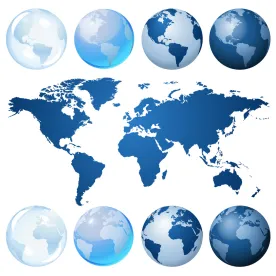On June 3, 2018, French tycoon Vincent Bolloré warned investors that Groupe Bolloré—a logistics provider with extensive operations in former French colonies in Africa—may suffer negative commercial and financial consequences as a result of a corruption investigation initiated by French authorities. Mr. Bolloré was questioned for two days by French police in April 2018 over allegations that Groupe Bolloré’s global advertising agency, Havas, provided improper benefits to the Presidents of Guinea and Togo in exchange for lucrative business contracts. Mr. Bolloré’s prediction on the investigation was bleak; he noted that the investigation will “last for 10 years, raids will be carried out, people will be questioned, the press will cover it day-to-day.”
The Groupe Bolloré investigation is one of the first high-profile investigations by French authorities since the December 2016 passage of France’s new anti-corruption law, titled “Loi relative à la transparence, à la lutte contre la corruption et à la modernisation de la vie économique,” (“The law on transparency, the fight against corruption and the modernisation of economic life”), but commonly referred to as “Loi Sapin II,” given its sponsorship by former French Finance Minister Michel Sapin.
Commentators have pointed to the Groupe Balloré investigation as a game-changer in French enforcement of anti-corruption laws, one that marks the ushering in of a new era of accountability for French businesses operating in Africa. We have previously covered developments relating to Loi Sapin II here and here. Below, we outline key aspects of the Loi Sapin II regime and its broader implications for companies operating in Africa.
Background on Loi Sapin II
Although France joined the Organization for Economic Co-Operation and Development (OECD) Anti-Corruption Convention in 1997, as recently as 2012 the OECD has pressed France to improve its anti-corruption enforcement efforts. Notably, US anti-corruption enforcers have brought several high-profile Foreign Corrupt Practices Act (“FCPA”) enforcement actions in recent years against French companies, each with significant financial penalties, and French enforcers have been criticized for taking no or limited action in some of those matters.
Loi Sapin II is notable in a number of respects. Specifically, the law (1) expands the extraterritorial reach of France’s anti-corruption laws; (2) obligates certain business organizations to implement compliance programs; (3) creates a new anti-corruption agency, the Agence Francaise Anticorruption (“AFA”); (4) improves protections for whistleblowers; and (5) creates a settlement framework known as the Convention judiciaire d’intérêt public (“CJIP”), which has been likened to a deferred prosecution agreement (“DPA”) under US practice.
- Extraterritorial Reach of Loi Sapin II
Perhaps the most important change in Loi Sapin II is the elimination of a dual criminality requirement for prosecution of extraterritorial conduct, significantly extending the ability of French authorities to reach corrupt conduct occurring overseas. Previously, French authorities had jurisdiction to prosecute offenses committed outside of French territory where: (1) the victim or wrongdoer were French citizens; (2) the alleged conduct was unlawful under the law of the local jurisdiction and French law; and (3) either the victim or the relevant foreign authority filed a complaint. Loi Sapin II removes these requirements, and also permits prosecution of persons or entities (regardless of their citizenship or nationality) who carry out all or part of their economic activity on French territory.
- Mandatory Compliance Program Requirements
Article 17 of Loi Sapin II imposes mandatory compliance program requirements for French companies that employ 500 or more employees with gross revenue of more than €100 million, as well as all consolidated subsidiaries of parent companies that meet the aforementioned size and revenue requirements. As of June 9, 2017, companies that meet these criteria were required to implement the following measures: (1) an anti-corruption code of conduct; (2) internal and external whistleblowing procedures; (3) risk-mapping that considers the company’s industry focus and geographic coverage; (4) third-party due diligence procedures; (5) internal and external accounting controls; (6) anti-corruption training; and (7) an internal monitoring and assessment system. In December 2017, the AFA published recommendations for the implementation of these measures. An English version of the AFA’s Guidelines can be viewed here.
- Powers of AFA
The AFA replaces the previous Service Central de Prévention de la Corruption (“Central Service for the Prevention of Corruption”). It is anticipated to have four times as many staff as its predecessor agency (more than 60 compared to 16) and a budget of €10–15 million. While the AFA does not have the power to investigate or prosecute bribery allegations, it has substantial powers to ensure that covered entities comply with Article 17 requirements. This includes the power to request documents, conduct site visits, and interview personnel during such site visits. As an enforcement mechanism, the AFA is empowered to impose fines against companies that fail to comply with program requirements, as well as relevant company leadership. Fines may also be imposed for refusal to share information requested by AFA.
- Whistleblower Protections
Loi Sapin II includes stronger whistleblower protections than were previously available under French law. These protections extend to any disinterested person who in good faith reports a violation of French law or an issue that poses a serious threat to the public interest of which he or she has personal knowledge. Companies are required to guarantee confidentiality and protect the identity of whistleblowers (Article 9), and are prohibited from retaliating against whistleblowers (Article 10). To enjoy the law’s protections, a whistleblower must first report suspected wrongdoing to his or her supervisor; only when the supervisor does not act within a reasonable timeframe or in the event of imminent danger is the employee permitted to report directly to the authorities. Loi Sapin II also provides immunity to whistleblowers (Article 7); and anyone found to create an “obstacle” to the filing of a whistleblowing report may face a fine of €15,000 and up to one year in prison, while revealing a whistleblower’s identity carries a potential two-year prison sentence and a fine of up to €30,000.
- CJIPs
Loi Sapin II introduced a resolution mechanism for enforcement actions known as the “CJIP” (short for “convention judiciaire d’intérêt public”) into French Criminal Law. Similar to deferred prosecution agreements employed by US authorities, CJIPs are negotiated settlements that apply to corporate entities. Under a CJIP, an organization may, without pleading guilty, agree to a combination of monetary remedies and compliance measures for alleged violations of Loi Sapin II. Like US DPAs, CJIPs may require the imposition of corporate compliance monitors. While France’s CJIP regime does not include a formal framework for assessing credit in a resolution for a company’s cooperation in the government’s investigation or voluntary disclosure of potential misconduct, we expect that these issues will prove to be significant factors in French prosecutors’ decisions whether to proceed by CJIP, and, if so, the remedies under a CJIP.
Considerations for Companies Subject to Loi Sapin II Operating in Africa
With the Loi Sapin II regime still in its relative infancy, trends are difficult to predict with confidence. However, we see two immediate takeaways for companies subject to Loi Sapin II:
- Companies Should Be Prepared for Significantly Increased Risk of Investigation of Extra-Territorial Conduct Under Loi Sapin II
It is perhaps too early to predict whether the Groupe Bolloré investigation will prove to be the tip of the spear in an aggressive anti-corruption enforcement campaign by French prosecutors over the coming years. However, we would expect more high-profile investigations to follow, and the combination of Loi Sapin II’s extensive extra-territorial reach and its whistleblower provisions significantly increases the likelihood that corrupt conduct abroad will come to the attention of French prosecutors. This raises the stakes for French companies dealing with allegations of corruption abroad. Companies finding themselves in this position would be well-advised to conduct internal investigations that are sufficiently prompt and thorough to withstand pressure-testing from enforcement authorities, and also to take swift remedial actions, including appropriate enhancement to anti-corruption policies and controls. While time will tell, as French enforcers begin to hit their stride and the investigation and resolution process under Loi Sapin II becomes more mature, we expect that there will be increased focus on issues of self-reporting, cooperation, and remediation, much as is the case in US and UK investigations. Moreover, recent enforcement actions have demonstrated increasing cooperation between French authorities and foreign enforcers, including US enforcers, raising the prospect of investigations and enforcement actions with multiple regulators at the table.
- Loi Sapin II’s Compliance Program Requirements Will Require Significant Resources and Consistent Efforts
Entities subject to Loi Sapin II’s mandatory compliance program requirements must grapple with a series of requirements and AFA oversight of their compliance programs. Although the AFA has indicated that it does not wish to dictate the specific methods through which companies achieve their compliance objectives, the AFA guidance will undoubtedly inform the measures that companies subject to Article 17 of Loi Sapin II (and perhaps companies not strictly subject to Article 17) put in place to meet its requirements. The AFA guidance is largely consistent with OECD best practices and the guidance that has emerged relating to the FCPA and UK Bribery Act; indeed, the AFA has indicated that it sought to integrate into its recommendations the requirements of international anti-bribery legislation to ensure that French standards are consistent with international best practices. Accordingly, companies that have already implemented compliance programs consistent with the guidance relating to the FCPA and/or the UK Bribery Act and are subject to the Article 17 compliance program requirements in France will likely be able to retain the core elements of their compliance programs, although additional measures may be required to meet some of the prescriptive requirements set forth in Loi Sapin II.
What this means in practice is that companies subject to Article 17 may not have the luxury of a prolonged timeframe to build a mature and effective compliance program. What is more, the AFA guidelines, which include detailed methodologies for risk assessment and monitoring the effectiveness of compliance programs, make clear that a “check the box” approach will be insufficient. As a result, companies that are subject to Article 17 would be well served to seek advice from professionals with experience implementing, and sustaining, compliance programs that pass muster with US and UK authorities. Moreover, even after initial implementation processes are complete, companies subject to Article 17 would be best advised to perform periodic assessments of the effectiveness of their programs.
***
This blog was prepared by Covington attorneys qualified to practice law in the United States and the United Kingdom. It does not constitute French law advice. Covington partners with French counsel with anti-corruption expertise to provide integrated anti-corruption compliance advice that takes into account French law as well as the international best practices that have developed under the US Foreign Corrupt Practices Act, the UK Bribery Act, and other international anti-corruption laws and conventions.






 />i
/>i

